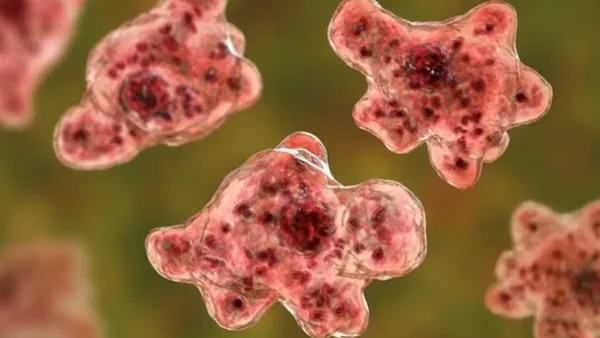
What Is Primary Amoebic Meningoencephalitis: The 'Brain-Eating' Amoeba Behind 19 Deaths In Kerala
Kerala Health Minister Veena George, on Wednesday, told ANI that 69 cases and 19 deaths were linked to the 'brain eating amoeba' in 2025.
Also Read | What is brain-eating amoeba? 9-year-old girl dies in KeralaThe minister however mentioned that the cases were not clusters but single cases.
What is Primary Amoebic Meningoencephalitis (PAM)?PAM occurs when the Naegleria fowleri, i.e, the 'brain eating amoeba' enters the body through the nose, typically when swimming or bathing in contaminated freshwater.
The symptoms typically appear after 1-12 days.
PAM symptoms:- Severe headache High fever Nausea and vomiting Stiff neck
- Confusion or disorientation Seizures Loss of consciousness
Kerala has registered several death reports for Primary Amoebic Meningoencephalitis (PAM) cases across districts in August and September 2025, as per official reports.
The infection, however, does not spread from person to person.
Which age group is affected?PAM cases have been reported in individuals ranging from 3 months to 91 years. This year, 33 males and 19 females have been affected.
Kerala has seen PAM cases before - in 2024, with infections reported in Kozhikode, Malappuram, and Kannur districts during June and July, reported ANI.
"Given past reports from the state and high fatality associated with the disease, continuous vigilance, enhanced surveillance, environmental sampling, and strict IEC measures are essential. NCDC and the State Health Department are monitoring the situation closely, with laboratory confirmation and epidemiological investigations underway," official sources said on Friday.
The Kerala government has asked people to seek immediate medical attention if they experience symptoms similar to a PAM infection after exposure to stagnant water.
The state's health minister also said that practitioners have been asked to check the cause of that meningoencephalitis.
“If they find amoeba, they will start the treatment for amoebic meningoencephalitis, which saves lives...Early detection leads to saving lives...” said Veena George.
(With inputs from agencies)
Legal Disclaimer:
MENAFN provides the
information “as is” without warranty of any kind. We do not accept
any responsibility or liability for the accuracy, content, images,
videos, licenses, completeness, legality, or reliability of the information
contained in this article. If you have any complaints or copyright
issues related to this article, kindly contact the provider above.

















Comments
No comment